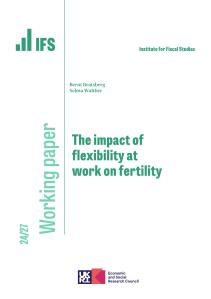On Monday, the government performed a dramatic U-turn on how A Level grades are assigned to students this year. The initial A Level grades, published on Thursday, had been produced by Ofqual’s now infamous algorithm, based on schools’ historical exam performance and teachers’ A Level grade predictions. These were widely criticised for favouring private schools and being unfair to the best students at schools with low historical exam performance.
The government has now followed Scotland, Wales, and Northern Ireland and announced that students in England will get the higher of the grade predicted by teachers and the one generated by the algorithm. Since teachers were highly optimistic about their students’ performance on average, this means that many students will now get higher grades than they were assigned on Thursday, and on the whole A Level grades will be much better this year than ever before.
Top universities to be awash with students
The most pressing issue now is what will happen to university places. There are lots of students who had offers that they missed with Thursday’s grades but will now meet with their new grades. This means the top universities will now receive more students with offers than places. Good data on this are hard to come by, but it looks like amongst UK students holding offers at Oxford or Cambridge, around 10% more than expected (or around 500 extra students) may now have achieved their offers.
Lower down the rankings, the effect on numbers is less clear: more applicants will have met their offers, but fewer will end up going to their insurance choice or finding a place via Clearing after missing their offers. But it seems plausible that for most higher-ranking universities, domestic student numbers will be higher than they expected.
To allow for this, the government has lifted the student numbers caps that it had temporarily brought back for this year in the wake of the COVID-19 crisis. But universities will still face physical capacity constraints in teaching and housing students. These constraints may not bind if many international and EU students do not take up their places as a result of the COVID-19 crisis: extra domestic students could just take their spots. But universities still don’t know how many of these students will turn up. They have made offers and will have to honour them if the international students do come.
The government is setting up a “task force” to help deal with the situation. One solution might be more online tuition. Another approach universities could take is to guarantee some more spots for next year and encourage students to defer (which would have knock-on effects for next year’s students). It is hard to know how appealing this would be for students - on the one hand, employment and travelling opportunities are worse than usual this year; on the other, many might be keen to avoid online lectures and a socially-distanced university experience.
Universities further down the rankings could be struggling for students
All of this has implications further down the pecking order of universities. While the top universities could be awash with students who have now met their offers, many lower-ranked universities may have the opposite problem. While these institutions can usually count on a steady stream of students who have missed their offers elsewhere, this could be reduced to a trickle this year. In addition, many students may try to get out of their newly-confirmed places as they realise they could get in somewhere better (although capacity constraints at top universities may limit the opportunities for this).
To counteract this effect, lower-ranked universities could dip into the pool of potential students who got no offers or have not yet applied. These students will have much better grades than usual this year, and many might be interested in going to university given the exceptionally tough labour market. Attracting these students could help the lowest-ranked universities avoid large losses. It would also pose a new challenge, as many of these students could be underprepared for their courses, especially having missed out on the experience of actually sitting their A Level exams.
As we have highlighted previously, many universities face a precarious financial situation at the moment as a result of the COVID-19 crisis. The extra uncertainty arising from better A Level results will not help. At first glance, we expect any losses to be relatively small compared to the potential losses on pensions and international student fees. However, there does remain a risk that some lower-ranked universities might lose a substantial share of their intake, which could be financially crippling – especially for those whose pre-COVID financial situation was already weak.
The government has failed on A Level grades for the coronavirus cohort
These problems were entirely avoidable. A Level results should never have been released before being subject to scrutiny beyond Ofqual. The government should not have had to rely on shocked 18-year-olds on results day to realise there was a problem. And the allocation of places should not have happened immediately – the government should have released the results in advance and allowed an appeals process on grades before allowing universities to finalise places.
Allocating A Level grades to students who did not sit exams was never going to be easy. But the government’s solution is a clear fail. This will have repercussions for universities and students, now and in the coming years.










